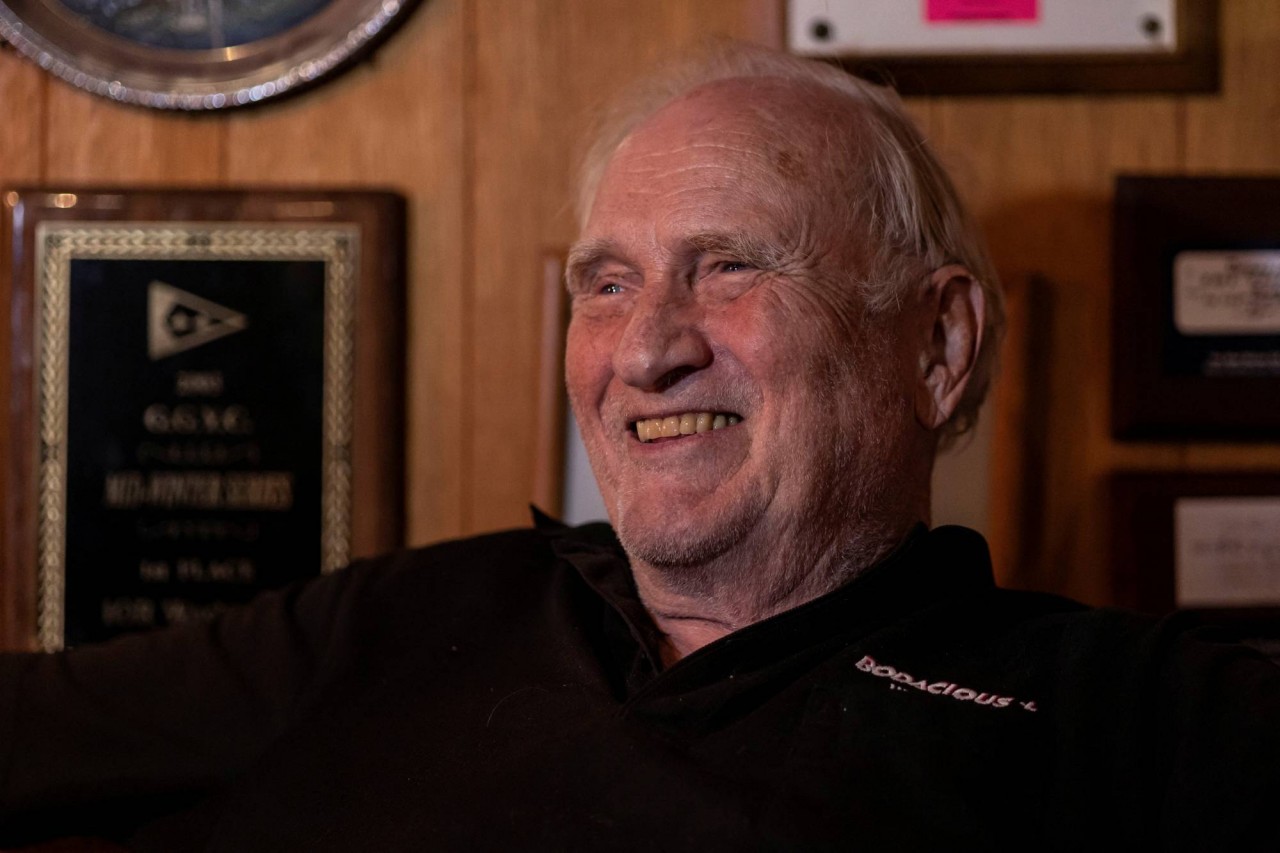Who Is Anton Zeilinger – One Of The Three Nobel Winner Of Quantum Physics?
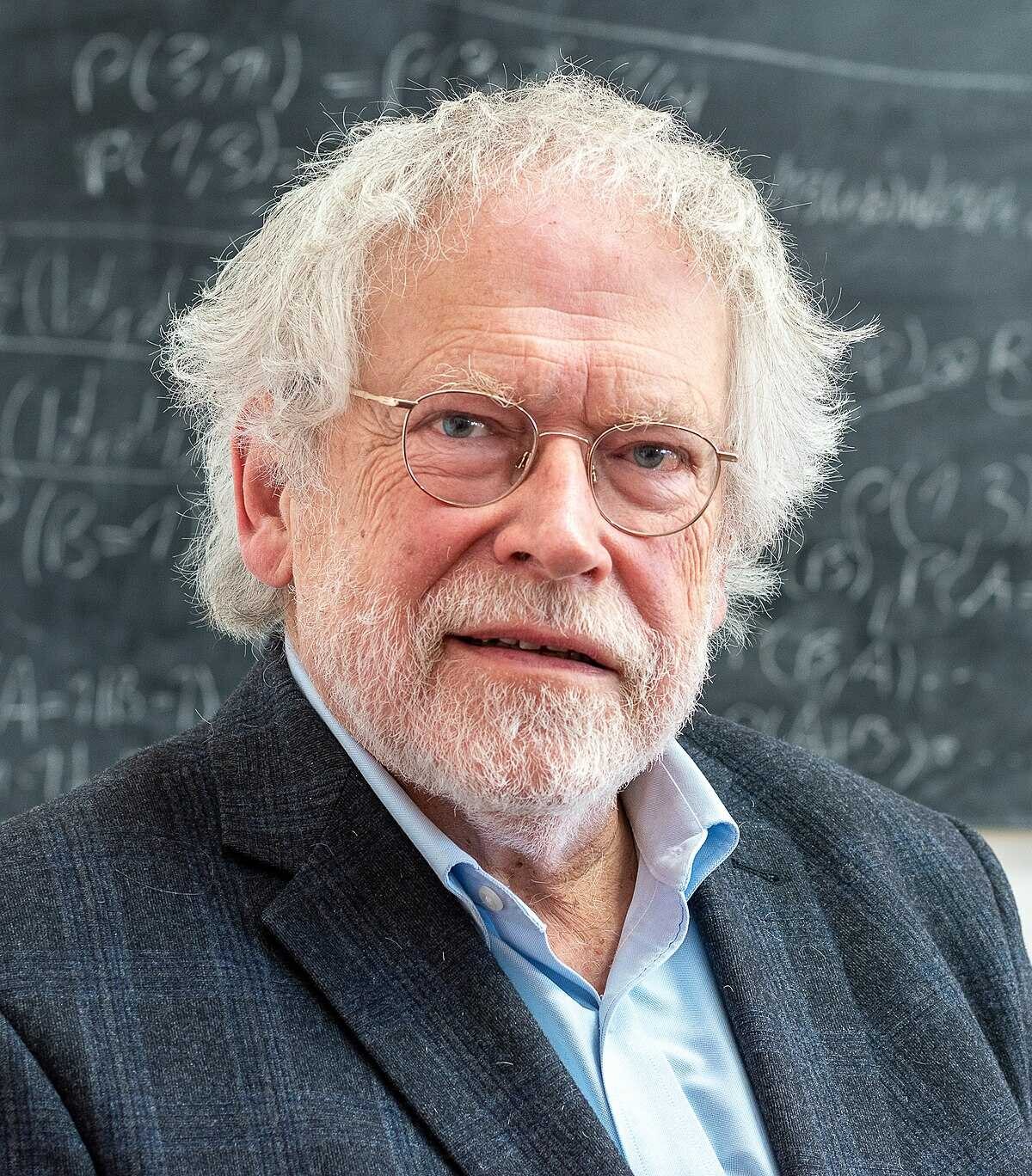 |
| Photo: Wikipedia |
Anton Zeilinger is a professor of physics at the University of Vienna and a Senior Scientist at the Institute for Quantum Optics and Quantum Information at the Austrian Academy of Sciences. His research group has demonstrated a phenomenon called quantum teleportation, which makes it possible to move a quantum state from one particle to one at a distance.
For Anders Irbäck, Chair of the Nobel Committee for Physics, “It has become increasingly clear that a new kind of quantum technology is emerging. We can see that the laureates’ work with entangled states is of great importance, even beyond the fundamental questions about the interpretation of quantum mechanics“.
Together with Anton Zeilinger, John Clauser and Alain Aspect were also awarded the Nobel Prize in Physics 2022 “for experiments with entangled photons, establishing the violation of Bell inequalities and pioneering quantum information science“.
Anton Zeilinger – Biography
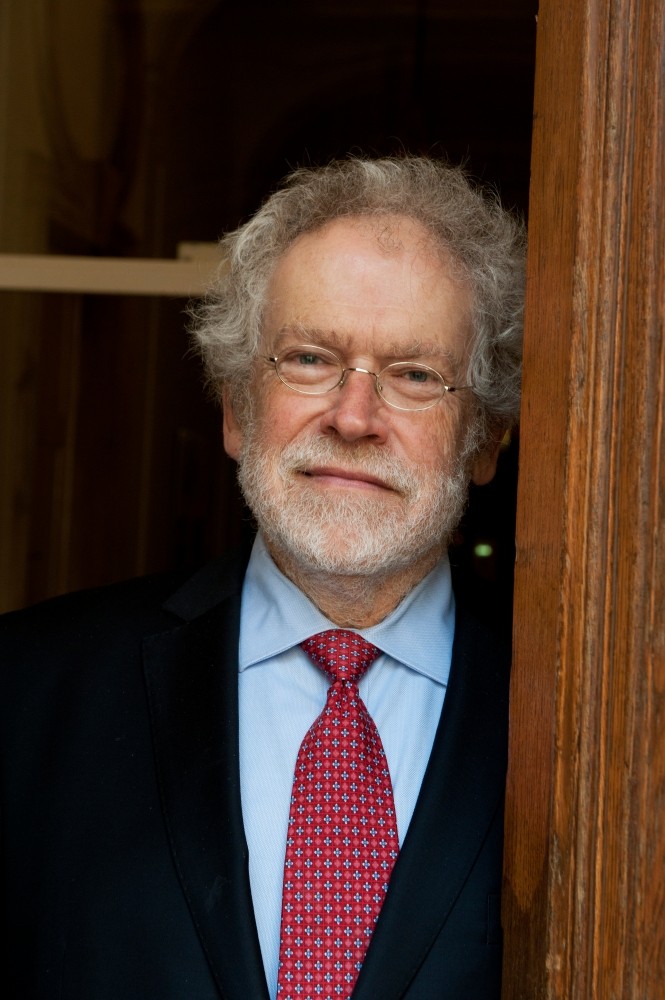 |
| Photo: Uniwersytet Gdański |
Anton Zeilinger (born 20 May 1945) is an Austrian quantum physicist and Nobel laureate in physics of 2022. Zeilinger is a professor of physics emeritus at the University of Vienna and a senior scientist at the Institute for Quantum Optics and Quantum Information of the Austrian Academy of Sciences. Most of his research concerns the fundamental aspects and applications of quantum entanglement.
In 2007, Zeilinger received the first Inaugural Isaac Newton Medal of the Institute of Physics, London for "his pioneering conceptual and experimental contributions to the foundations of quantum physics, which have become the cornerstone for the rapidly-evolving field of quantum information." In October 2022, he received the Nobel Prize in Physics, jointly with Alain Aspect and John Clauser for their outstanding work involving experiments with entangled photons, establishing the violation of Bell inequalities and pioneering quantum information science.
Early life and education
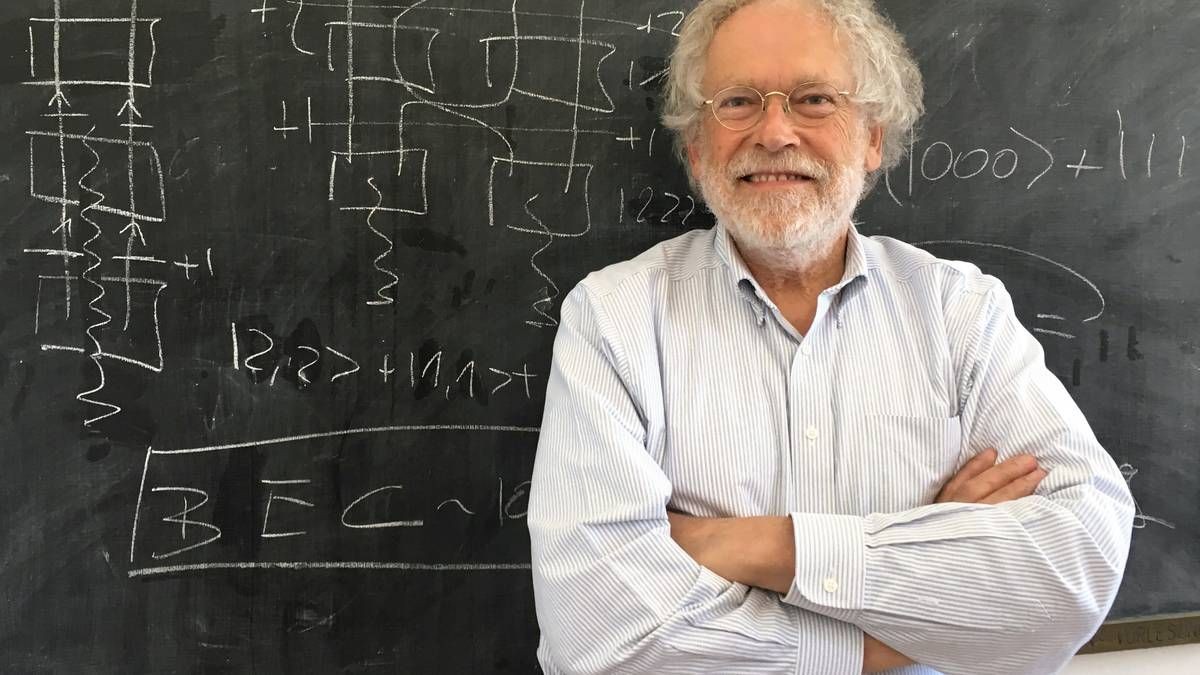 |
| Photo: Getty Images |
Anton Zeilinger was born in 1945 in Ried im Innkreis, Upper Austria, Austria. He studied physics and mathematics at the University of Vienna from 1963 to 1971. He received a doctor of philosophy from the University of Vienna in 1971, with a thesis on "Neutron depolarization measurements on a Dy-single crystal" under Helmut Rauch. He qualified as a university lecturer (habilitation) at the Vienna University of Technology in 1979.
Career
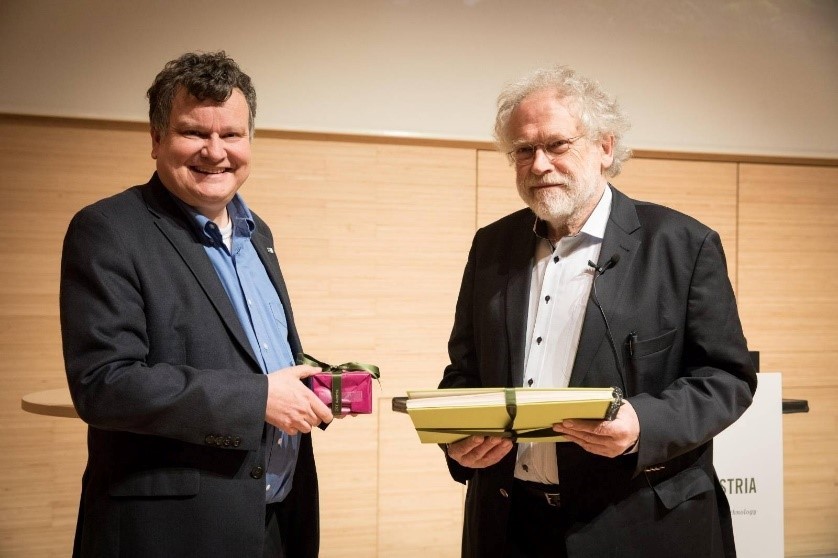 |
| Photo: ISTA |
Anton Zeilinger is a Professor of Physics emeritus at the University of Vienna and a Senior Scientist at the Institute for Quantum Optics and Quantum Information of the Austrian Academy of Sciences. He is a Quantum Physicist recognized for his "pioneering conceptional and experimental contribution to the foundation of Quantum Physics, which have become the cornerstone for the rapidly-evolving field of Quantum Information" as mentioned in his citation for the inaugural Isaac Newton Medal of the Institute of Physics (UK). He is known particularly for his experimental and theoretical work on entanglement, most notably the realization of multi-particle entangled states, quantum teleportation, quantum communication and cryptography, photonic quantum computation, and matter-wave interferometry from neutrons to fullerenes, the latter investigating decoherence and the quantum-classical transition in detail. Anton Zeilinger was born in Austria in 1945 and received his doctorate from the University of Vienna in 1971. He was on the faculties of the Technical University of Vienna and the University of Innsbruck before joining the University of Vienna in 1999 where he served as Chair of the Physics Department. Zeilinger held numerous visiting appointments, including M.I.T., the Technical University of Munich, Humboldt University Berlin, Oxford University, and the Chaire International at the College de France. Anton Zeilinger has been President of the Austrian Physical Society and is currently President of the Austrian Academy of Sciences.
He was president of the Austrian Academy of Sciences from 2013 to 2022. Since 2006, Zeilinger is the vice chairman of the board of trustees of the Institute of Science and Technology Austria, an ambitious project initiated by Zeilinger's proposal. In 2009, he founded the International Academy Traunkirchen, which is dedicated to the support of gifted students in science and technology. He is a fan of the Hitchhiker's Guide To The Galaxy by Douglas Adams, going so far as to name his sailboat 42.
Zeilinger works on the foundations of quantum mechanics. He discovered, together with Daniel Greenberger and Michael Horne, novel counter-intuitive features of three- and four-particle states. He was the first, with his team, to realize those in the experiment. This opened the field of multi-particle interference and multi-particle quantum correlations. Using the methods developed there, he performed the first quantum teleportation of an independent qubit. This was followed by the realization of entanglement swapping, a most interesting concept where an entangled state is teleported.
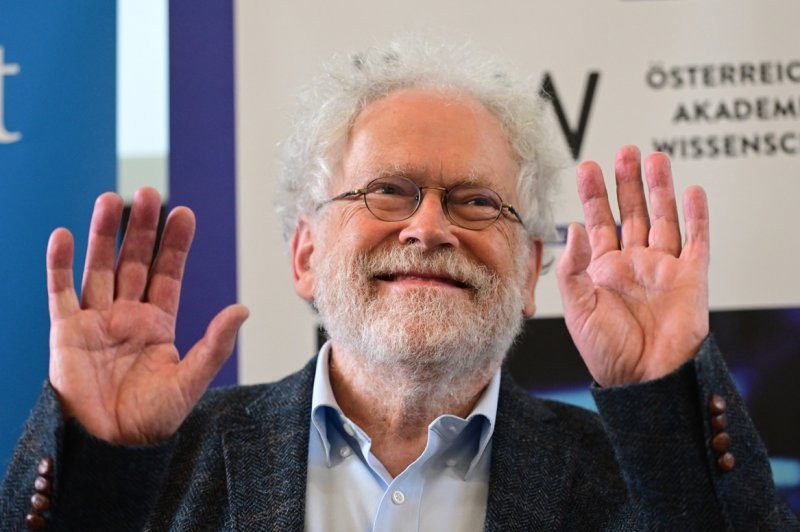 |
| Photo: Getty Images |
This work was followed by numerous tests of Bell’s inequalities, including a Cosmic Bell Test. Other fundamental experiments concerned Leggett’s nonlocal realistic theories, tests of quantum contextuality in Kochen-Specker experiments, and experiments on nonlocal Schrödinger steering with entangled states.
Many of these results became relevant in the development of quantum information technology, where he also performed pioneering experiments. His experiment on quantum dense coding was the first to use entanglement to demonstrate a primitive, not possible in classical physics. He also realized the first entanglement-based quantum cryptography experiment and later, quantum communication over increasing distances and, implementing higher-dimensional states, with increasing information capacity. Possible applications also include one-way quantum computation and blind quantum computation. Among his further contributions to the experimental and conceptual foundations of quantum mechanics are matter wave interference all the way from neutrons via atoms to macromolecules such as fullerenes.
International prizes and awards
Nobel Prize (2022, with John Clauser, Alain Aspect)
Micius Quantum Prize, Micius Quantum Foundation (2019, with Stephen Wiesner, Charles H. Bennett, Gilles Brassard, Artur Ekert and Pan Jianwei)
Cozzarelli Prize in Physical and Mathematical Sciences, PNAS and National Academy of Sciences (2018, with Alexey A. Melnikov, Hendrik Poulsen Nautrup, Mario Krenn, Vedran Dunjko, Markus Tiersch and Hans Briegel)
John Stewart Bell Prize for Research on Fundamental Issues in Quantum Mechanics and their Applications, University of Toronto (2017, with Ronald Hanson and Sae Woo Nam)
Silver medal of the Senate of the Czech Republic (2017)
Willis E. Lamb Award, Physics of Quantum Electronics (PQE) conference (2016, with Robin Côté, Maciej Lewenstein, and John Madey)
Academy Medal of the Heidelberg Academy of Sciences and Humanities (2015)
Medaille du Collège de France (2015)
Urania Medal, Urania Berlin (2013)
Finalist, World Technology Award for Communications Technology, World Technology Network (2012)
Ben Gurion Medal, Ben-Gurion University of the Negev (2010)
Wolf Prize in Physics, Wolf Foundation (2010, with Alain Aspect and John Clauser)
Grand Merit Cross with Star of the Order of Merit of the Federal Republic of Germany (2009)
ERC Advanced Grant, European Research Council (2008)
International Quantum Communication Award, Tamagawa University (2008, with Jeffrey Shapiro, Akira Furusawa)
Inaugural Isaac Newton Medal, Institute of Physics (2008)
Quantum Electronics Prize, European Physical Society (2007)
King Faisal International Prize in physics, King Faisal Foundation (2005)
Descartes Prize, European Union, as member of the IST-QuComm project collaboration (2004)
Lorenz-Oken Medal, Society of German Scientists and Physicians (2004)
Klopsteg Memorial Award, American Association of Physics Teachers(2004)
Sartorius Prize, Sartorius AG (2003)
Order Pour le Mérite for Arts and Sciences (2001)
Senior Humboldt Fellow Prize, Alexander von Humboldt Foundation (2000)
European Optics Prize, European Optical Society (1997)
European Lecturer (1996)
Prix Vinci d'Excellence (1995)
 | Who Is Svante Paabo - Swedish Geneticist Wins Nobel Medicine Prize For Decoding Ancient DNA? The Nobel Committee in Stockholm (Sweden) has announced the 2022 Nobel Prize in Biomedical Sciences to scientist Svante Paabo, for the discovery of genes and ... |
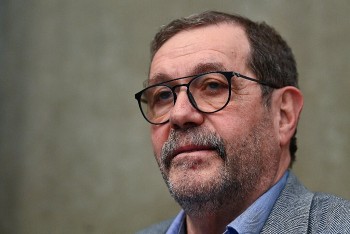 | Who Is Alain Aspect – The Nobel Winner Of Quantum Entanglement? Alain Aspect, who won a long-expected Nobel Physics Prize on Tuesday, not only helped prove the strange theory of quantum entanglement but also inspired a ... |
 | Who Is John Clauser – One Of The Three Nobel Winning Of Quantum Physics? Alain Aspect, John F. Clauser, and Anton Zeilinger have won this year's Nobel Prize in physics for their work in quantum mechanics, Sweden's Karolinska Institute ... |
Recommended
 World
World
Pakistan NCRC report explores emerging child rights issues
 World
World
"India has right to defend herself against terror," says German Foreign Minister, endorses Op Sindoor
 World
World
‘We stand with India’: Japan, UAE back New Delhi over its global outreach against terror
 World
World
'Action Was Entirely Justifiable': Former US NSA John Bolton Backs India's Right After Pahalgam Attack
 World
World
US, China Conclude Trade Talks with Positive Outcome
 World
World
Nifty, Sensex jumped more than 2% in opening as India-Pakistan tensions ease
 World
World
Easing of US-China Tariffs: Markets React Positively, Experts Remain Cautious
 World
World

